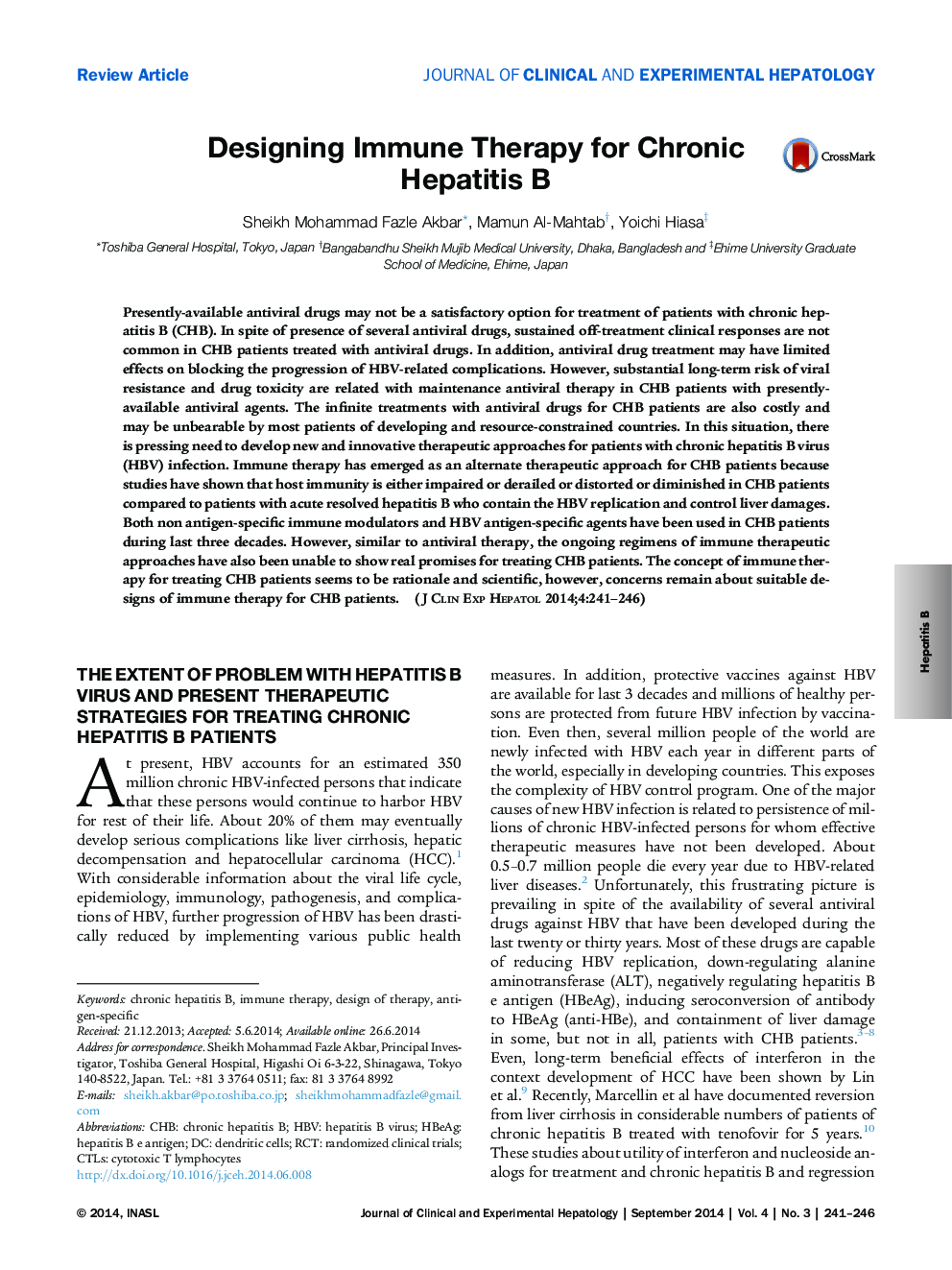| Article ID | Journal | Published Year | Pages | File Type |
|---|---|---|---|---|
| 3339298 | Journal of Clinical and Experimental Hepatology | 2014 | 6 Pages |
Presently-available antiviral drugs may not be a satisfactory option for treatment of patients with chronic hepatitis B (CHB). In spite of presence of several antiviral drugs, sustained off-treatment clinical responses are not common in CHB patients treated with antiviral drugs. In addition, antiviral drug treatment may have limited effects on blocking the progression of HBV-related complications. However, substantial long-term risk of viral resistance and drug toxicity are related with maintenance antiviral therapy in CHB patients with presently-available antiviral agents. The infinite treatments with antiviral drugs for CHB patients are also costly and may be unbearable by most patients of developing and resource-constrained countries. In this situation, there is pressing need to develop new and innovative therapeutic approaches for patients with chronic hepatitis B virus (HBV) infection. Immune therapy has emerged as an alternate therapeutic approach for CHB patients because studies have shown that host immunity is either impaired or derailed or distorted or diminished in CHB patients compared to patients with acute resolved hepatitis B who contain the HBV replication and control liver damages. Both non antigen-specific immune modulators and HBV antigen-specific agents have been used in CHB patients during last three decades. However, similar to antiviral therapy, the ongoing regimens of immune therapeutic approaches have also been unable to show real promises for treating CHB patients. The concept of immune therapy for treating CHB patients seems to be rationale and scientific, however, concerns remain about suitable designs of immune therapy for CHB patients.
